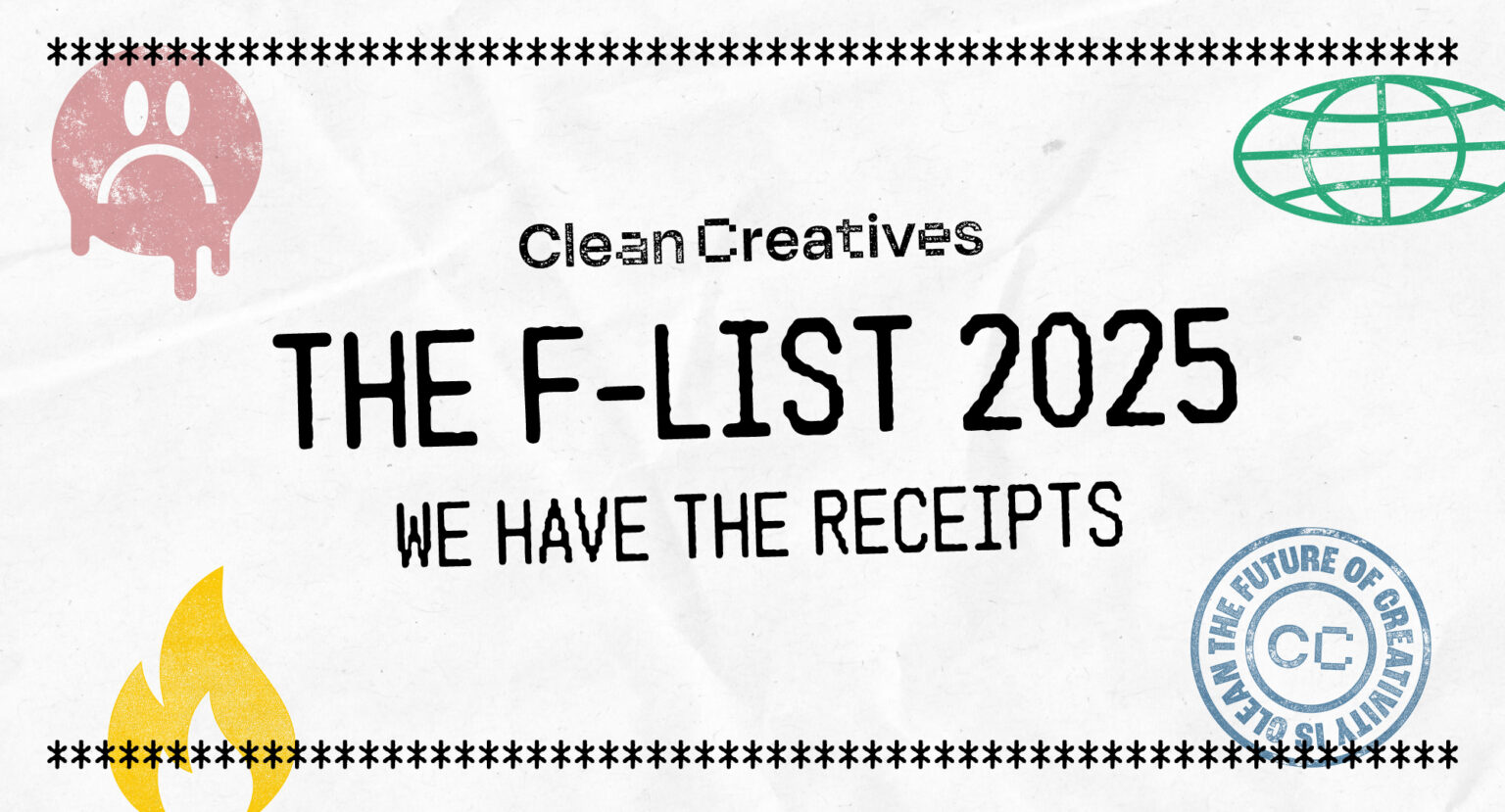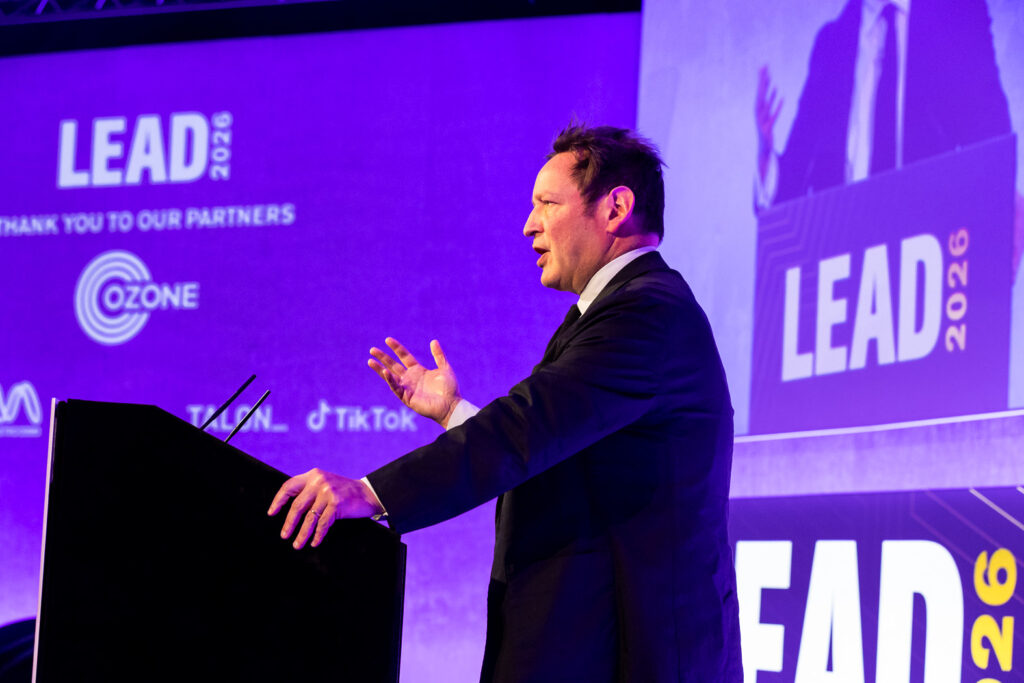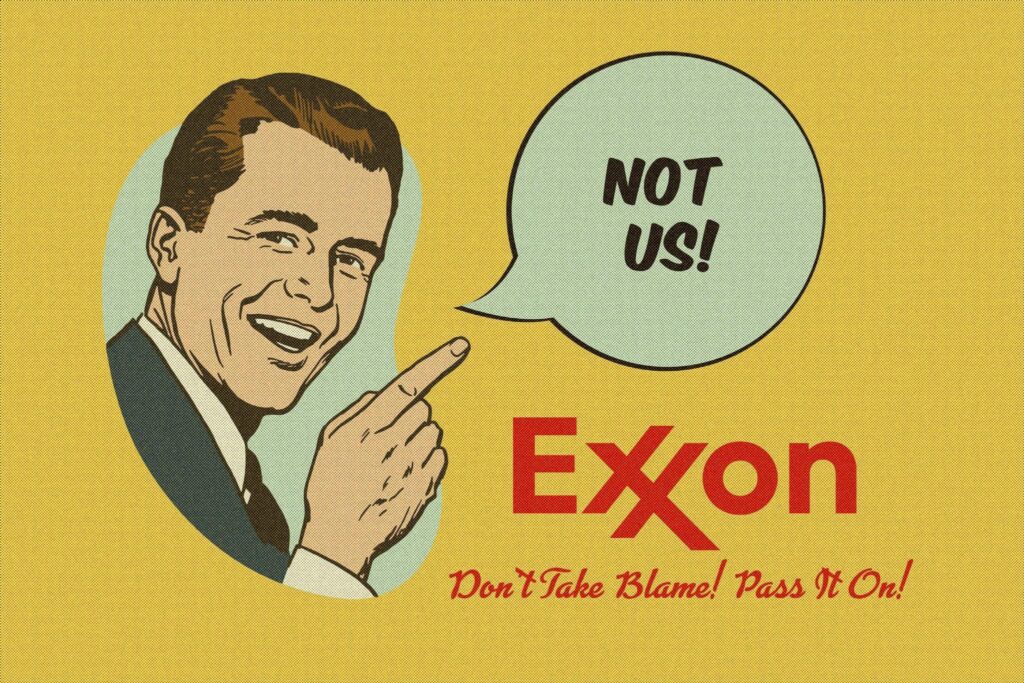New York-based communications company Omnicom’s acquisition of rival IPG will create a new global leader in fossil fuel advertising, overtaking London-based WPP for the first time, according to a new report.
Under the $13.7 billion deal, announced in late 2024, the merged entity’s subsidiary agencies will hold a total of 120 fossil fuel contracts, the annual F-List report published by campaign group Clean Creatives found.
Last year, Omnicom agencies held 74 contracts with fossil fuel companies, and IPG agencies held 50, according to the report’s previous edition.
The UK’s WPP had topped the F-List — which details relationships between advertising and public relations companies and the fossil fuel industry — in previous years, holding 79 contracts in 2024 and 55 in 2023. Despite losing its top position, the global ad giant remains heavily involved with the fossil fuel industry, with 82 contracts in 2025.
“In our fifth year of publication, we have found more contracts than ever before,” said Nayantara Dutta, head of research at Clean Creatives. “The creative industry urgently requires an integrity check and large-scale systemic change to reflect the challenges of a fossil fuel economy when considering its own longevity, public health and our planet.”
Despite growing calls for the advertising sector to drop fossil fuel clients, major agencies are rolling back their sustainability pledges amid the Trump administration’s rejection of climate action, geopolitical tensions, and the erosion of traditional revenues by artificial intelligence (AI).
Omnicom and IPG expect their merger to conclude before the end of this year, creating the largest media buying agency in the world with a combined annual revenue of around $25 billion, according to reports.
Clean Creatives says that more than 1,400 agencies worldwide have signed its pledge to refuse fossil fuel contracts, along with over 3,700 individual creatives. However, the “Big Six” conglomerates — Omnicom, IPG, WPP, Publicis, Havas, and Dentsu — that dominate the global advertising market through their hundreds of subsidiaries have shown scant signs of rejecting oil and gas clients.
Last month, DeSmog revealed that IPG is facing allegations from staff that its work for Saudi Aramco violated the company’s 2022 climate pledge.
The latest edition of the F-List documents 1,217 active or recent fossil fuel advertising contracts globally, including 444 new contracts between advertising and public relations agencies and their oil and gas clients.
Researchers found that 15.6 percent of contracts from 2024 were no longer active — a smaller figure than the 16.5 percent of contracts that had been discontinued the previous year, but still an indication of significant turnover in agency-client relationships.
Other global advertising groups with significant fossil fuel exposure include Publicis (34 contracts), Dentsu (18), Havas (18), and Stagwell (11). IPG-owned McCann Worldgroup led individual agencies in terms of fossil fuel contracts with 15 relationships.
‘Conflict of Interest’
Notable WPP relationships include its AKQA subsidiary’s active contract with Shell — a relationship that had been known about within industry circles, according to Clean Creatives, but had not previously been publicly documented.
WPP shuttered AKQA Bloom, its Miami-based sustainability-focused agency, in March, DeSmog reported. AKQA Bloom had positioned itself as dedicated to “environmental sustainability and social impact” but had suffered declining revenues. A source told DeSmog at the time that WPP had intended to bring in more fossil fuel clients.
Other WPP agencies with major fossil fuel contracts include Burson, which holds 13 contracts. Ogilvy has 11.
American PR giant Edelman’s fossil fuel relationships have drawn renewed scrutiny amid the firm’s selection to perform media strategy work for the COP30 UN climate talks in Brazil this year. The world’s largest public relations firm by revenue, Edelman has recently taken on work for LNG Canada, the country’s first liquefied natural gas export facility, the F-List found.
For the first time, Clean Creatives has introduced a new financial risk metric — the Fossil Fuel Income Risk Exposure (FFIRE) index — which measures agencies’ dependence on fossil fuel revenue as a percentage of their total income. Edelman tops this index with the highest exposure of any major agency at 5.6 percent – more than five times the industry average of less than one percent.
“There is literally no agency worse suited for a role at COP30,” said Duncan Meisel, executive director of Clean Creatives. “If the UN climate talks succeed in their goal, Edelman faces an existential threat to their revenue — that’s the definition of a conflict of interest.”
An Edelman spokesperson said the company believed that “climate change is one of the greatest crises of our time, requiring bold solutions, collaboration, and innovation,”
The spokesperson added that, “Edelman is committed to being part of the change by working with diverse clients, including governments and energy companies, who have a vital role to play in the energy transition. We continue to abide by our climate principles and have not changed our course.”
Independent agencies continue to handle three-quarters of all fossil contracts, holding 924 such contracts compared to 293 at major global advertising groups.
In the UK, Arden Strategies holds the most fossil fuel contracts among independent agencies, holding seven contracts with oil and gas companies, according to Clean Creatives. Former Labour Cabinet minister Jim Murphy, who served as Secretary of State for Scotland from 2008 to 2010, founded the firm. Lobbying disclosures show Arden has worked for eight oil and gas companies including Equinor, Centrica, and gas distributor Cadent, according to DeSmog reporting.
Shell leads all fossil fuel companies in terms of the number of contracts it has with advertising agencies at 69, followed by BP with 50 and TotalEnergies with 42, the F-List found.
Omnicom, IPG, WPP, Shell, and Arden Strategies did not respond to requests for comment.
Subscribe to our newsletter
Stay up to date with DeSmog news and alerts






